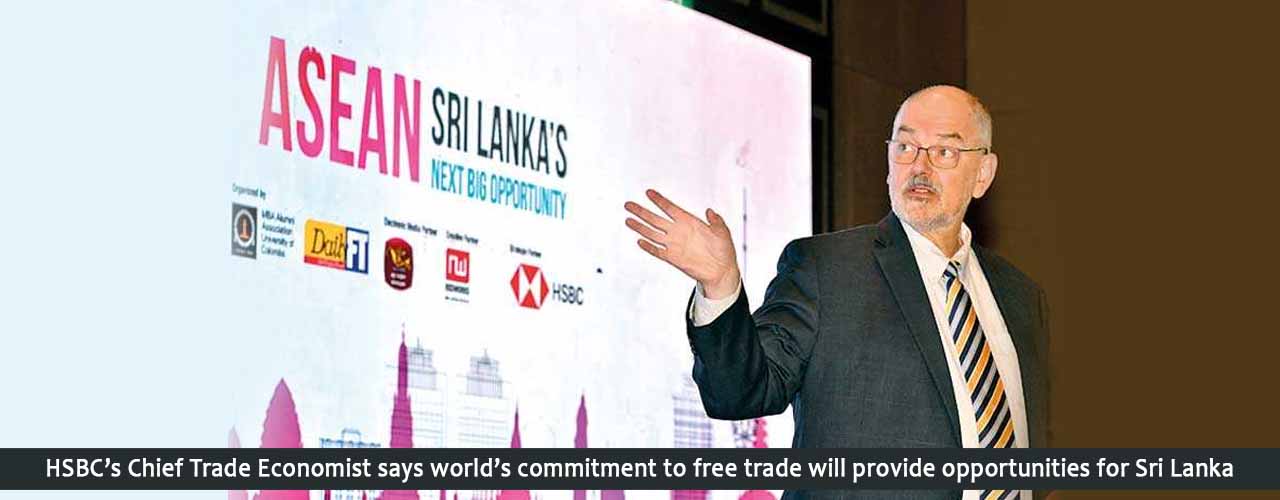HSBC’s Chief Trade Economist says world’s commitment to free trade will provide opportunities for Sri Lanka
A top economist has reportedly said that the world’s commitment to free trade provides space for developing countries such as Sri Lanka to seize opportunities to reform and integrate with global value chains.
HSBC Chief Trade Economist Douglas Lippoldt has made this observation delivering the keynote address at the Daily FT-Colombo University MBA Alumni Association organized and HSBC supported forum titled ‘ASEAN: Sri Lanka’s Next Big Opportunity.’
Emphasising that large trade corridors are still dominated by prominent trade partners, Lippoldt has reportedly said small economies benefit by plugging into global value chains, and cited Sri Lanka’s apparel industry as an excellent example.
With South-South trade expected to grow, he has stressed that trade protectionism is not a cause for fear even if trade between developed economies could become slightly limited.
“Trade was growing two to three times in terms of GDP during 2004-2008, where the world was becoming more trade intensive. Thereafter, trade grew at a much slower pace, particularly in 2015 and 2016. China revised its strategy and shifted from export-led growth to more domestic-focused consumption,” the economist has noted.
Lippoldt has pointed out that during last year, goods trade increased by 5.2%, recording significant growth. However, experts predict a 4.6% deceleration in trade this year, which could drop further to 3.9% in 2019.
“So far the world remains in a fairly good position with the dynamism from emerging markets. Since 2008, global trade has seen a lot of protectionism policies and red tape, but now the world is more open. I think the proper way forward is for Government policy and trade to support businesses to continue trade without barriers,” he has explained.
In terms of Sri Lanka’s market access, Lippoldt has been quoted as saying that the impending multiple trade and liberalisation initiatives, such as FTAs and increasing access to EU and US markets, would help economic development.
Praising the direction of ASEAN, he has said the ASEAN Economic Community (AEC) regional integration blueprint is built on four pillars: single market and production base, competitive economic region, equitable economic development and integration with the world economy.
According to reports, the region accounts for a GDP of US$ 2.6 trillion, with top trade partners like China, Japan and the EU dominating trade in sectors such as electronics, chemicals, coke and fuels, mining and food.
Lippoldt has further pointed out that China’s Belt and Road initiative (BRI) as a boost to investment and a trade complement which would boost a range of sectors.
OSL take:
As stated by Lippoldt, Sri Lanka possesses the opportunity to capitalize on the global trade trends. Given the country’s geographical position as well as the business conducive economic policies, Sri Lanka is undoubtedly the best venue for the setting up of business bases as well as partnerships.
| Article Code : | VBS/AT/20180614/Z_3 |

